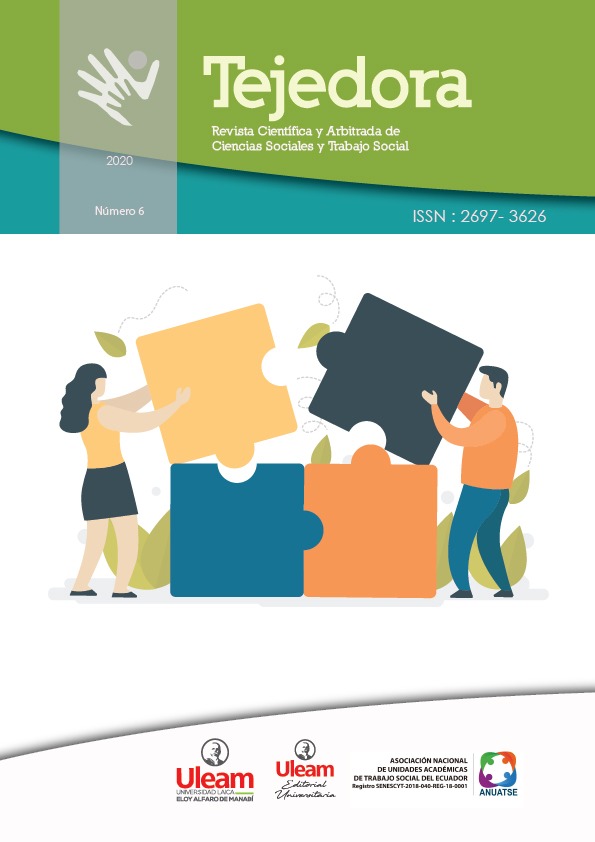INCIDENCE OF BULLYING ON ACADEMIC PERFORMANCE IN BACCALAUREATE, COLEGIO NUESTRA SEÑORA DEL ROSARIO- CATAMAYO
DOI:
https://doi.org/10.56124/tj.v7i15ep.017Keywords:
Academic achievement, bullying, factorsAbstract
The present study analyzes the relationship between bullying and academic performance in first year high school students of the Educational Unit Nuestra Señora del Rosario in Catamayo, having as main objective to evaluate how bullying influences academic performance, using a non-experimental and descriptive approach, with a neopositivist paradigm, using quantitative methods to analyze the cause-effect relationship between bullying and academic performance. The forms of bullying (verbal, psychological, physical, social), the factors that influence bullying and its consequences, as well as prevention and approach strategies are described. In addition, the research is based on the Constitution of Ecuador and other agencies related to children and adolescents, selecting a sample of 25 students, from which data were collected through surveys and documentary review, focusing the research on observing and documenting the characteristics of bullying and its impact on academic performance. It was found that 32% of the students were victims of bullying in the last six months, with verbal bullying being the most common.
In addition, 44% of the students considered that it does affect their academic performance. The data were processed using PSPP software, where it was determined that age influences the type of bullying experienced, confirming the hypothesis that they are dependent variables. The research has provided a detailed and comprehensive understanding of the relationship between bullying and academic achievement, which is fundamental to the implementation of educational policies and practices
Downloads
References
Borja, C., Gómez, C., Barzola, M., Malca, S., Alvarado, E., Vilchez, A., & Díaz- : Universidad de Chile. https://repositorio.uchile.cl/bitstream/handle/2250/106279/cs-batista_y.pdf
Borja, C., Gómez, C., Barzola, M., Malca, S., Alvarado, E., Vilchez, A., Díaz-Flores, F. (2020). Análisis de la variable acoso escolar: Un aporte desde la producción científica latinoamericana. Propósitos y Representaciones 8(2), e451, doi: http://dx.doi.org/10.20511/pyr2020.v8n2.451
Musri, S. (2012 ). Acoso escolar y estrategias de prevención en educación escolar básica y media. Paraguay: Universidad tecnológica Intercontinental. https://www.academia.edu/10434415/ACOSO_ESCOLAR_Y_ESTRATEGIAS_DE_PREVENCI%C3%93N_EN_EDUCACI%C3%93N_ESCOLAR_B%C3%81SICA_Y_NIVEL_MEDIO_SILVIA_MARTHA_MUSRI
Hernández, R., Fernández, C., Baptista, María. (2014). Metodología de la investigación (6° ed.). México: McGraw Hill Interamericana Editores S.A. de C.V.
Romero, D., Mejía, Jhon., Murillo, K., & Granda, L. (2021). El bullying, un flagelo contemporáneo presente en el contexto educativo ecuatoriano. Conrado, 17(80), 247-254. Epub 02 de junio de 2021. http://scielo.sld.cu/scielo.php?script=sci_arttext&pid=S1990-86442021000300247&lng=es&tlng=es.
Santin, D., & Caregnato, S. (2020). Concentración y desigualdad científica en América Latina y el Caribe a principios del siglo XXI: Un estudio cienciométrico. Información, cultura y sociedad: revista del Instituto de Investigaciones Bibliotecológicas, (43), 13-30. https://doi.org/10.34096/ics.i43.8131
Published
How to Cite
Issue
Section
License
Copyright (c) 2024 Revista Científica y Arbitrada de Ciencias Sociales y Trabajo Social: Tejedora. ISSN: 2697-3626

This work is licensed under a Creative Commons Attribution-NonCommercial-ShareAlike 4.0 International License.






















